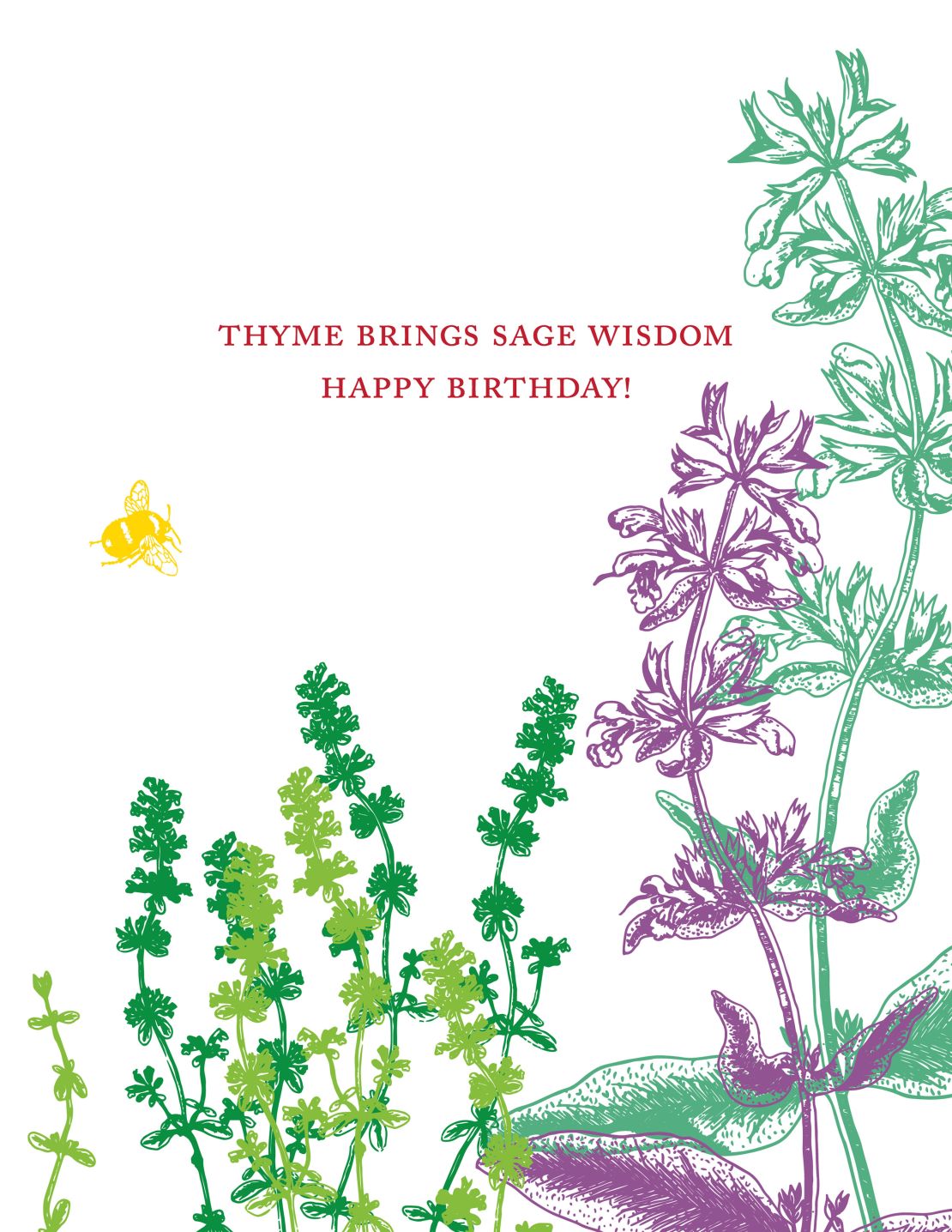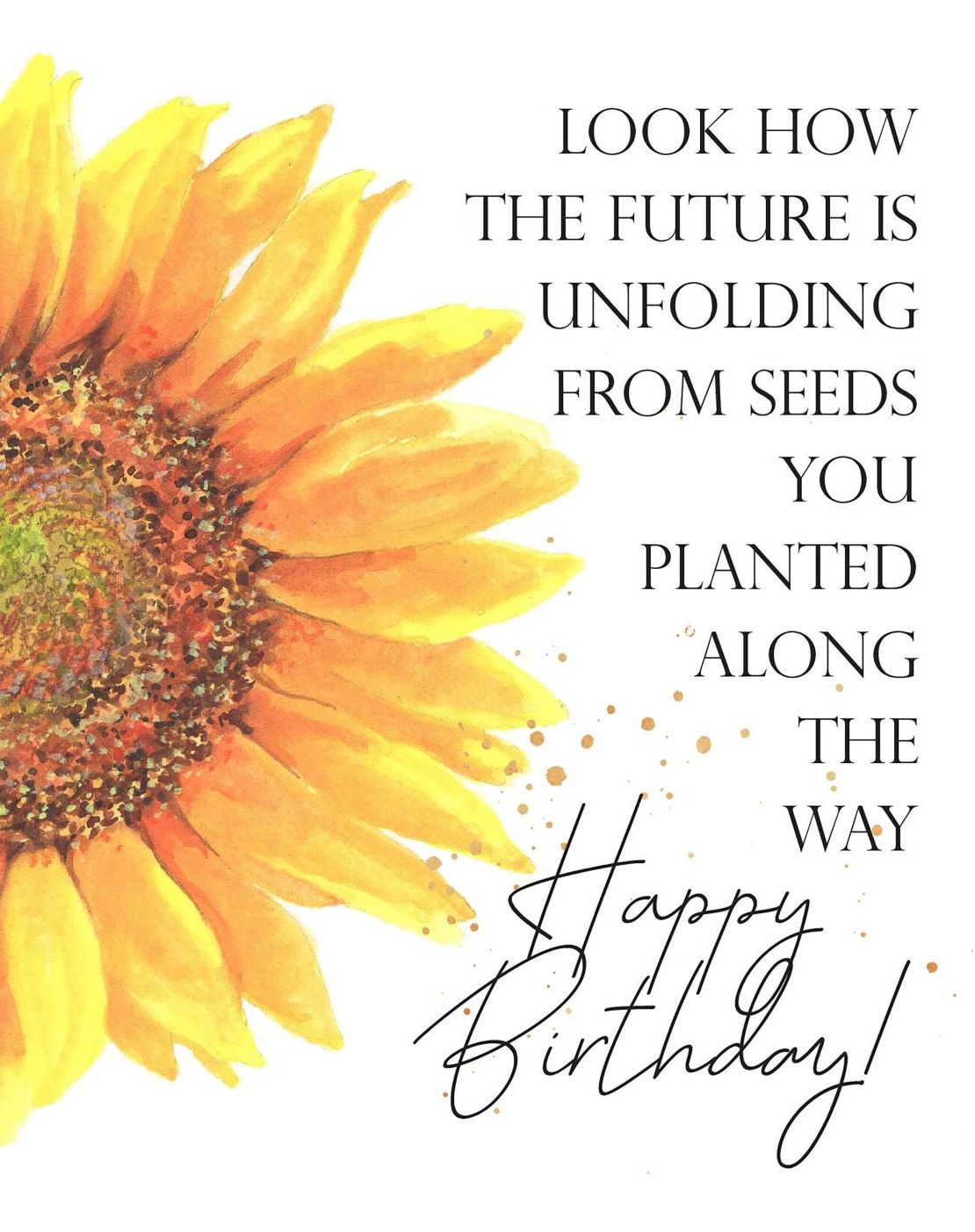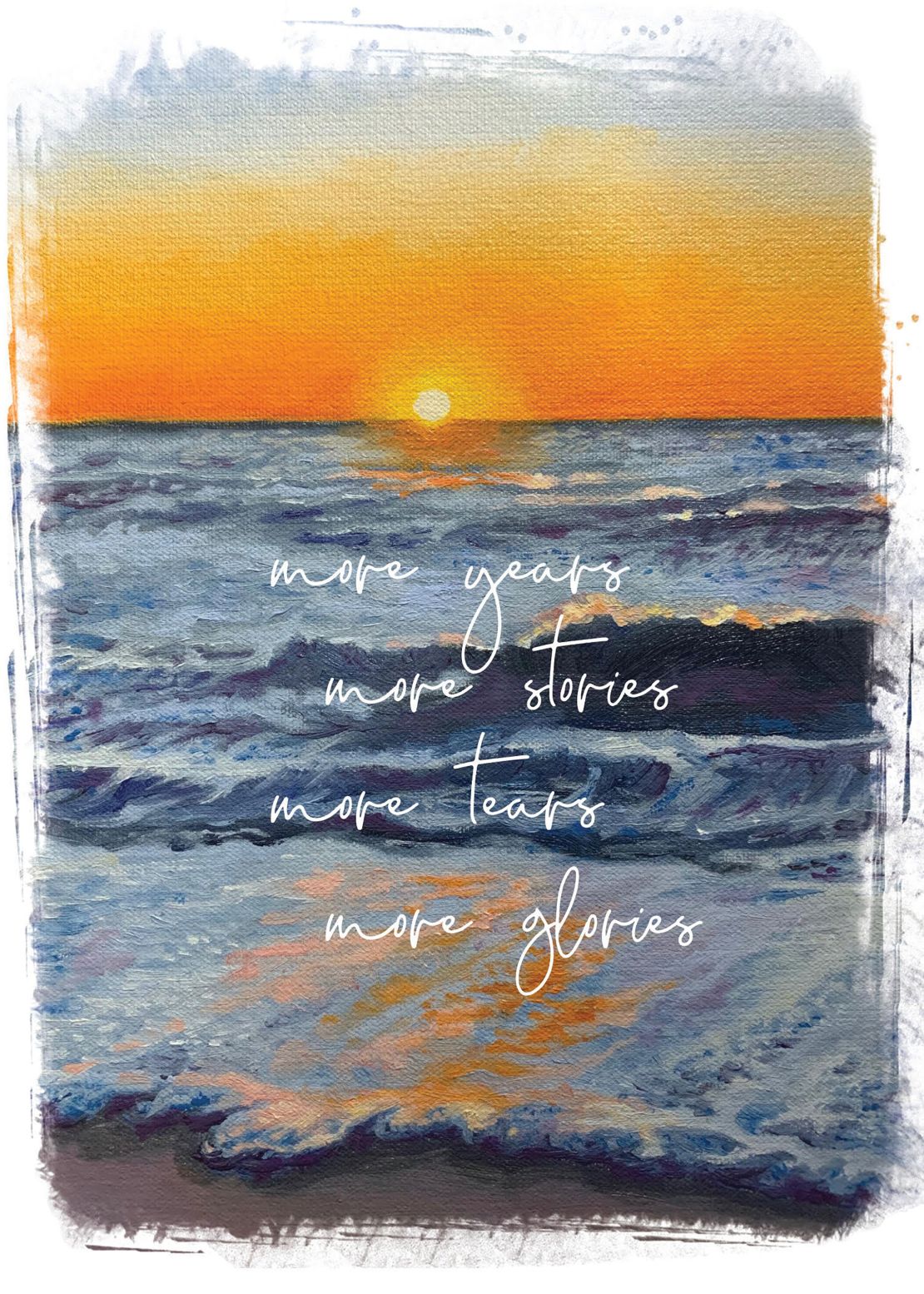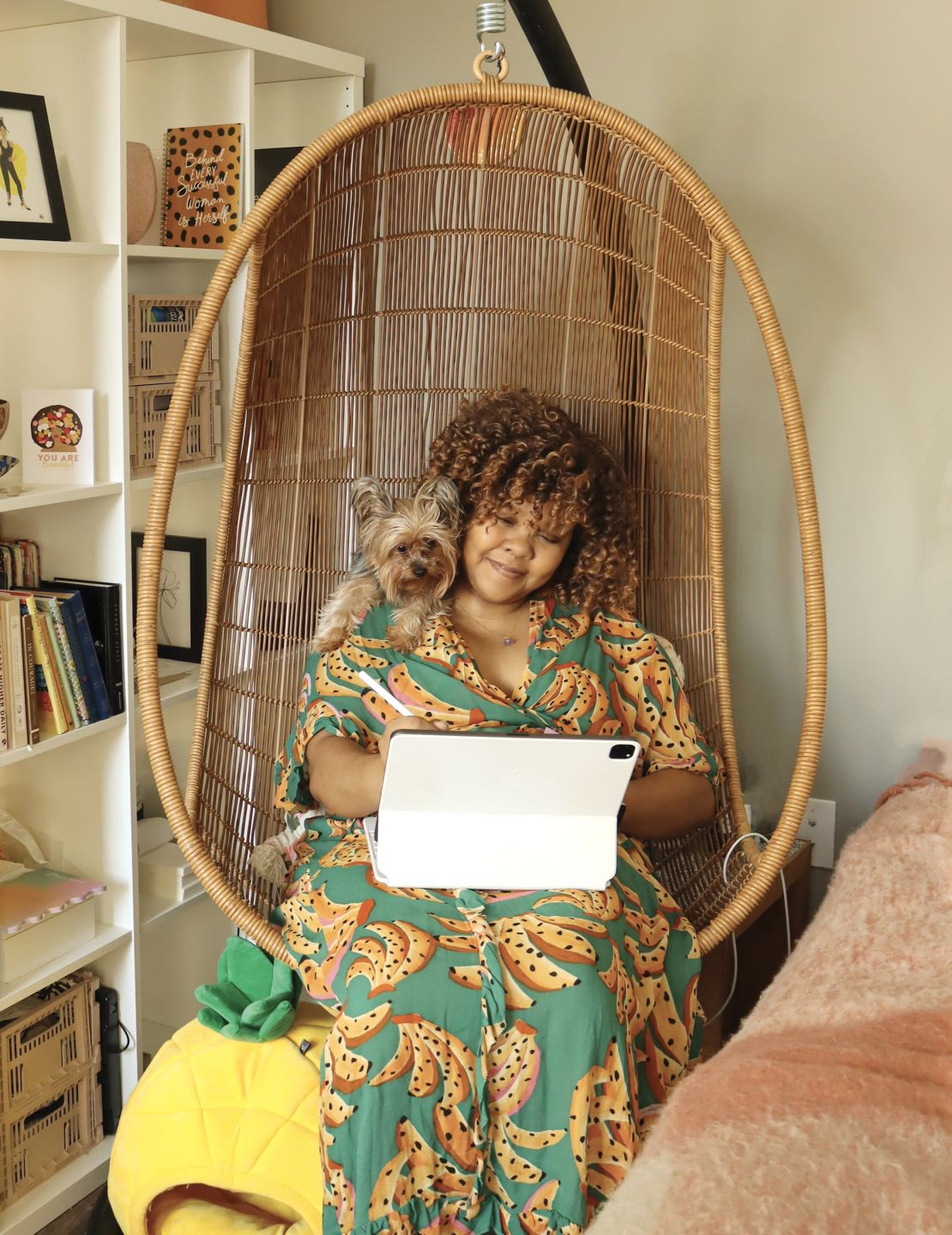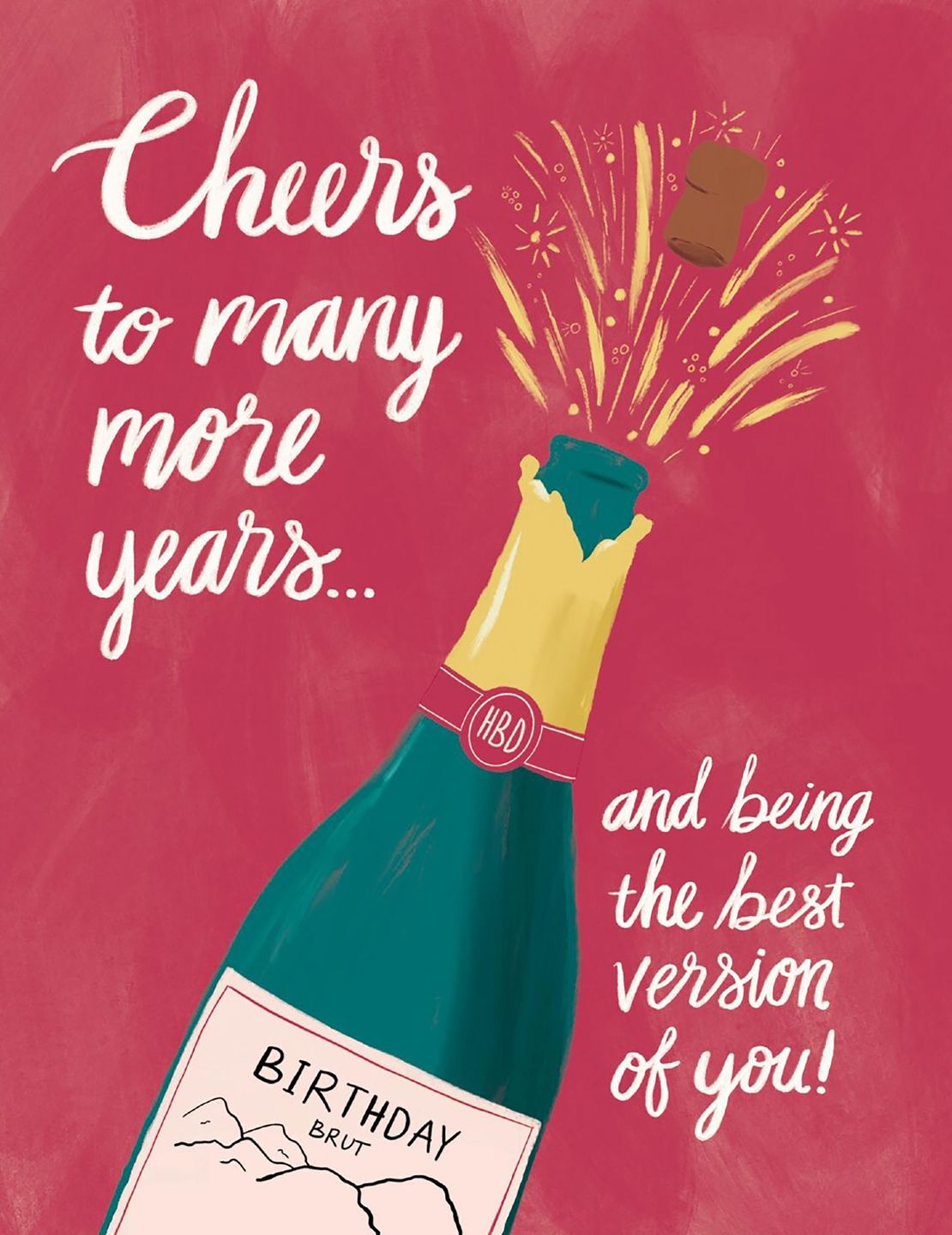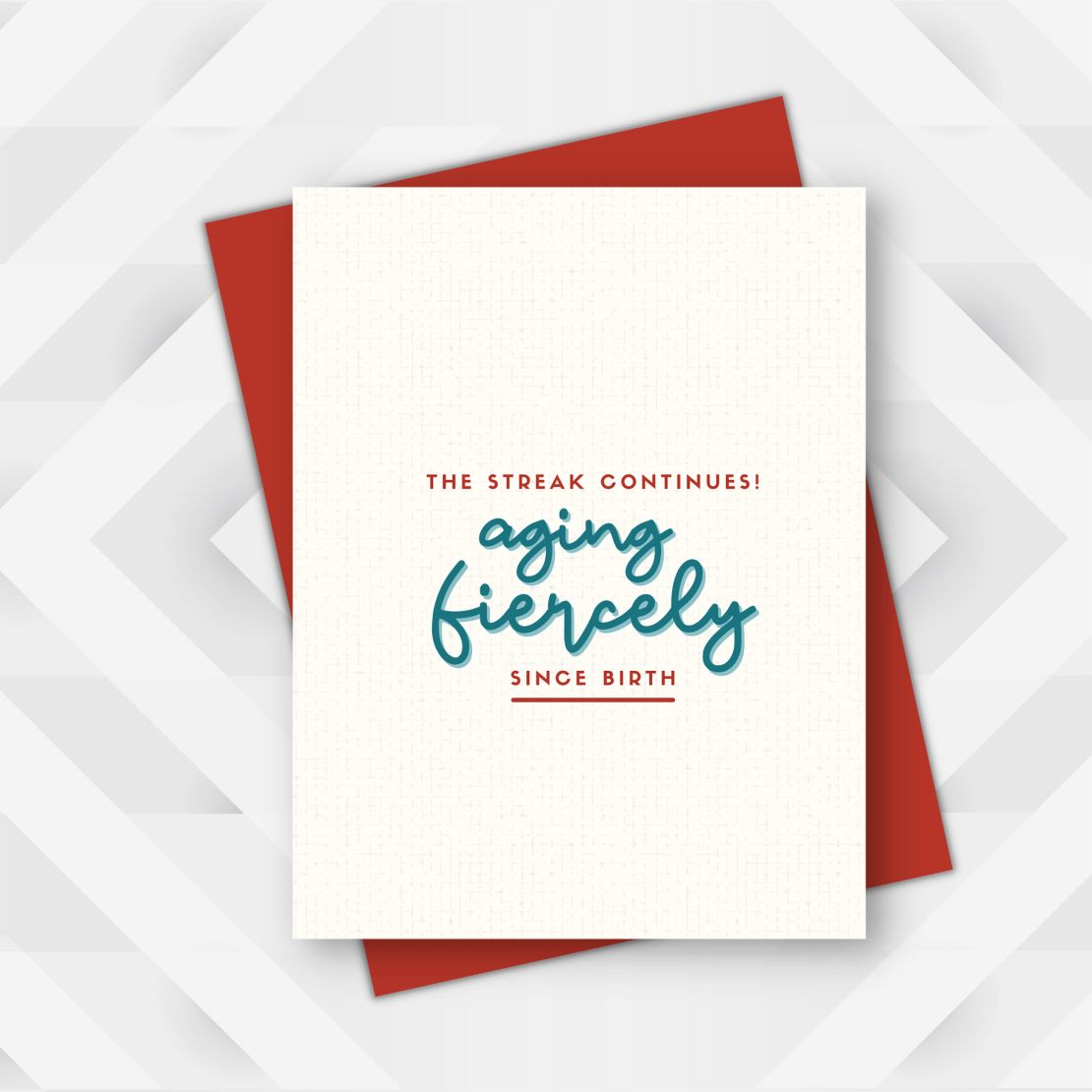Many birthday cards mock getting older. These artists are painting a different picture.

Breindel is co-director of a Denver-based anti-ageism campaign dubbed Changing the Narrative. And when it comes to how we talk about getting older, she’s been trying to do just that.
Dismayed by “the racks of birthday card options that mock older adults as weak, deaf, forgetful and crabby,” the group created a contest asking artists to design birthday cards with a more “age-positive” approach.
Breindel says the winning designs, and others like them, are sending a powerful and critically important message.
Birthday cards may sound innocuous, but Breindel says they’ve become a prominent example of harmful messaging that can have significant health consequences.
“The way we think about aging affects how we age,” she says, pointing to research showing that negative views on aging can affect physical and mental health and even decrease someone’s lifespan, while “age-positive views” can help people live longer.
For years, “over the hill” birthday cards were the norm, says Sarah Schwartz, editor-in-chief of Stationery Trends.
But times are changing, she says. Cards in general are becoming kinder, Schwartz says, and makers who design cards that are more positive about aging are building a growing following on social media and capturing a small but growing share of the greeting card market.
“A lot of these ideas have really found their communities and just sort of taken root,” says Schwartz, who also blogs about stationery on her website, The Paper Nerd.
Schwartz says it’s been common to see each emerging generation of greeting card artists put their spin on things. But this trend, she says, is different.
“What’s cool about this is that it’s an older generation sort of making the medium their own and using it to put out a really amazing message and help redefine what aging is, what birthdays are, and sort of get away from that ‘over the hill’ model that has…dominated our culture for decades,” she says.
Breindel says designers from different backgrounds living in states across the country have responded to Changing the Narrative’s challenge – each one with their own artistic style and point of view.
Here’s a look at some recent card designs and what inspired the artists who made them:
She grew up revering her elders. Immigrating to the US led to a jarring realization
“Subtle and not-so-subtle disrespect for the elderly” was one of the biggest culture shocks for Marina Kishkovich when she immigrated to the United States from the then-USSR decades ago.
She heard it in the words people used, and she saw it in the cards they’d give each other.
“My great grandmother lives until she was 89 years old. And my grandfather passed away at 100. Until their last day, they were people you could come to for advice and to have an intelligent conversation,” Kishkovich says. “I cannot imagine giving them a card that says something ridiculous like, ‘You’re over the hill. Time to say goodbye.’”
Many of the birthday cards she’s seen over the years rubbed her the wrong way.
“It seemed really disrespectful and rude to be mocking someone for something that no one has any control over. … (But) it felt so entrenched that it didn’t even register for me as something that I could do something about,” she says. “It just felt like, okay, well, this is how things are. And we’re kind of stuck with it.”
But Kishkovich, 45, says the Changing the Narrative contest gave her a chance to offer an alternative. She created a card in line with others in her collection at Ampersand M Studio, which often uses puns alongside images of plants, fruits and vegetables.
The front of her card reads: “Thyme brings sage wisdom. Happy Birthday!”
So far, the response has been “very gratifying,” Kishkovich says, and also telling. The card has sold well, she says, and many people have thanked her for making it.
“Because we see the market dominated by the negative cards, when something like this is out there, people do comment, ‘This is exactly the kind of message I was looking for’ to give my partner, to give my friends, to give my parent.”
When she became a grandma, none of the stereotypes fit
Karen Ritz was 58 years old when she became a grandma. And quickly, she realized the images she’d seen for years didn’t line up with the reality she and so many others were living.
“We were just not the stereotype – no teeth and white hair and rocking chair and everything,” says Ritz, who lives in St. Paul, Minnesota, and runs a website dedicated to “wrinkle-free grandparenting.”
Ritz, now 66, has illustrated dozens of children’s books. With greeting cards, she’s found a way to tell even more stories. She made her first card around 2013, and started her own card business several years ago. Ritz says Changing the Narrative’s contest inspired her and resonated with one of her aims: highlighting the beauty she’s found in this stage of life.
“I just want to inspire people to have fun with their age. This is the first time I’ve been able to be really a full-time artist making an income, finally, just doing that. So it’s a great age. I’ve waited my whole life to be here,” she says. “I feel so grateful about even being here, too, because after Covid, we’re all like that, right?”
Ritz’s winning design depicts a sunflower and says, “Look how the future is unfolding from seeds you planted along the way.”
It’s something she’s seen reflected in her own grandchildren, now aged 9 and 7, as she nurtures them and watches them grow.
“I’m just always working on things that will inspire them to learn more. … It’s just so fun to see them light up,” she says.
And Ritz says she’s learning with them, too.
She sees aging as a journey that should be celebrated
Several years ago, Lauren-Ashley Barnes was “stressed out and burned out” making custom wedding and birthday invitations.
“I was saying yes to all of these things that I did not want to do because I was a people pleaser,” says Barnes, 36, of Dallas.
That changed when, inspired by advice she’d read from Oprah, Barnes started saying no. And she started a new card and gift company, Pineapple Sundays Design Studio, dedicated to “celebrating and bringing more positive vibes into your everyday life.”
Changing the Narrative’s contest, she says, was a natural fit.
She brainstormed ideas and ran them by her older sister. One featured a cast-iron skillet. It made her think of her grandmother’s cooking.
“I don’t really like that,” her sister told her. “I don’t find it fun.”
So Barnes tried a different approach. Her winning design features a champagne bottle accompanied by the message, “Cheers to many more years… and being the best version of you!”
“As you get older, you grow more. You grow into and out of yourself again and again as you age,” she says. “And I feel like that should be celebrated — not the number you’re turning, just your growth, and how you’re flourishing.”
Barnes says that’s a message someone can appreciate at any age.
She was fed up with ‘damn, you’re old’ cards. So she started designing her own
Jan Golden tried turning to Google to find funny birthday card options. She couldn’t believe how negative the results were.
“I got fired up. … I was just astounded to see the number of cards that were declaring, ‘damn, you’re old,’ and then all the caricatures of older adults,” Golden recalls.
At that time, a few years ago, Golden was working as a web developer. The disappointing Google search results and Changing the Narrative’s birthday card contest inspired her to try her hand at making designs of her own.
Golden didn’t enter the contest because she was already a volunteer for the organization and helping judge the entries. But the more she made her own cards, the more she loved it. And what started out as a side hustle has become a new career. Now Golden’s company, Age-Friendly Vibes, is creating the cards she wished she’d seen before.
The cards feature witty phrases in bold type and bright teal and red hues. Among the options: “Older, wiser, hotter than ever,” “Celebrating you never gets old” and “The older you get, the more beautiful you are, inside and out.”
Golden, 62, says she gets a lot of her inspiration from an unexpected source: critical online comments. Recent responses to Dolly Parton’s Thanksgiving halftime show appearance, for example, gave her a fresh round of ideas.
“I actually have found…ways to kind of flip the script,” she says.
Golden traces the origins of ageist cards to the 1980s, when she says cards started popping up with messages like, “There’s an old saying about how great it is to get older. Too bad I can’t remember what it is.”
“There were so many copycats that were modeled after that. … You still see these caricatures of older people — even though they’re trying to make them more upbeat — but it’s like these sagging body parts and hunched over people with walkers,” Golden says.
And those messages can have negative consequences far beyond the greeting card aisle, Golden says.
“Your hiring manager is seeing it, the marketing manager that’s creating that ad is seeing it. There’s a lot of ageism in healthcare, too,” she says. “So it’s just contributing to that narrative that getting older is just decline, depression and dementia.”
But there’s a more recent trend Golden says she’s excited to see. The demand for her cards has only grown since she launched the business two years ago.
“People are ready to hear a different message,” she says.



